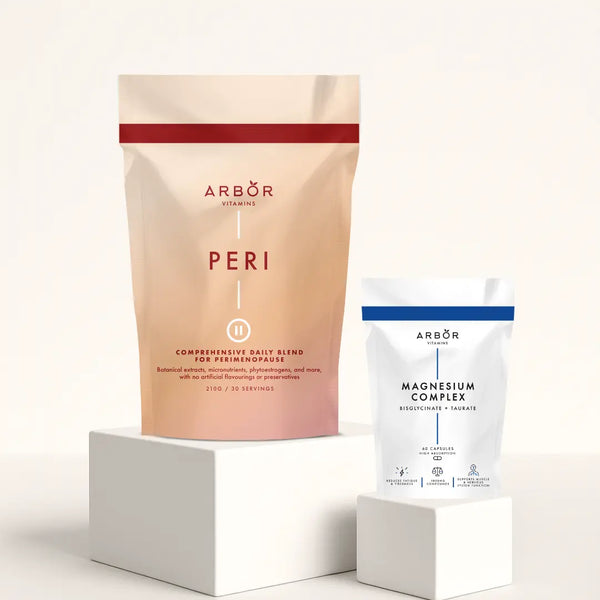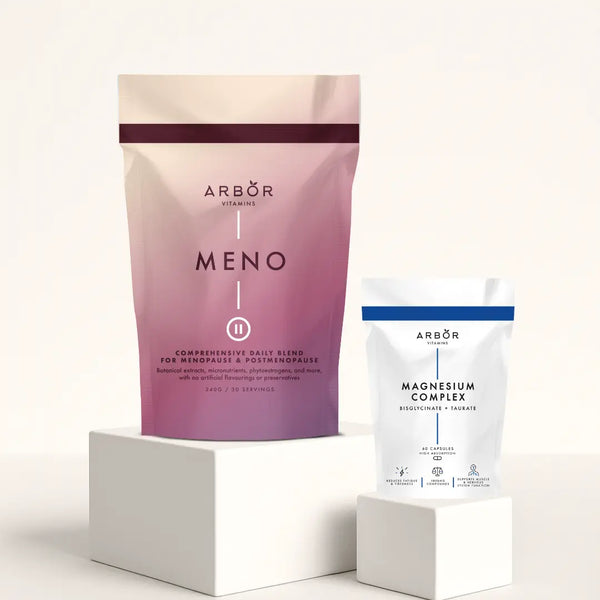Ultimate Guide to B Vitamins
Ultimate Guide to B Vitamins: B vitamins are a group of essential nutrients that play a multifaceted role in maintaining optimal health. From boosting energy levels to supporting brain function, skin health, and immune system function, these vitamins are true powerhouses. In this comprehensive guide, we'll delve into the intricate world of B vitamins, exploring their individual contributions, dietary sources, and their impact on various life stages.
- The B Vitamin Family: An In-Depth Overview
The B vitamins are a remarkable group of eight water-soluble vitamins, each with a unique and indispensable role to play in supporting a wide array of bodily functions. These vitamins, collectively referred to as the "B-complex," are essential for maintaining overall health and well-being. In this comprehensive exploration, we'll delve into the specifics of each B vitamin to understand their individual contributions to your body's vitality.
1.1 B1 - Thiamine: The Energy Catalyst
Thiamine, also known as Vitamin B1, serves as a vital catalyst in your body's energy production process. This vitamin is particularly significant in converting carbohydrates from your diet into the energy your body needs to function optimally. Moreover, thiamine plays a crucial role in maintaining a healthy nervous system, ensuring the efficient transmission of nerve signals.
1.2 B2 - Riboflavin: For The Skin and Eyes
Riboflavin, or Vitamin B2, is essential for maintaining healthy skin, eyes, and mucous membranes. It actively participates in the body's utilisation of oxygen and the breakdown of carbohydrates, fats, and proteins. This multifaceted vitamin contributes to overall growth and the repair of tissues, making it a cornerstone of good health.
1.3 B3 - Niacin: For Digestive Support
Niacin, also known as Vitamin B3, is a dynamic nutrient that is central to digestive health. It plays a pivotal role in breaking down carbohydrates, fats, and proteins, facilitating their conversion into usable energy. Niacin also supports healthy skin and nerve function, contributing to your overall well-being.
1.4 B5 - Pantothenic Acid: The Cellular Sustainer
Pantothenic Acid, or Vitamin B5, is an essential component in the synthesis of fatty acids and other crucial cellular processes. It plays a fundamental role in the metabolism of carbohydrates, fats, and proteins, ensuring that your body efficiently converts these nutrients into energy. This vitamin is integral to maintaining healthy skin and hair.
1.5 B6 - Pyridoxine: The Brain Booster
Pyridoxine, or Vitamin B6, is instrumental in supporting brain development and function. It is involved in the production of neurotransmitters, which are essential for transmitting signals between nerve cells. Adequate Vitamin B6 intake is critical for cognitive function and the regulation of mood.
1.6 B7 - Biotin: The Beauty Vitamin
Biotin, often referred to as Vitamin B7, is celebrated for its role in maintaining healthy hair, skin, and nails. Beyond its beauty benefits, biotin is also involved in several metabolic processes, helping your body break down carbohydrates, fats, and proteins for energy.
1.7 B9 - Folate: The DNA Builder
Folate, or Vitamin B9, plays a pivotal role in DNA and RNA synthesis, making it an essential nutrient during periods of rapid cell division and growth, such as pregnancy and infancy. Adequate folate intake is critical for preventing neural tube defects in developing fetuses.
1.8 B12 - Cobalamin: The Red Blood Cell Champion
Cobalamin, known as Vitamin B12, is a key player in the production of red blood cells. It ensures that your body has an adequate supply of oxygen-carrying red blood cells, preventing anaemia and fatigue. Additionally, Vitamin B12 is crucial for proper nerve function, making it indispensable for overall health.
Understanding the intricate roles of each B vitamin in this diverse family helps us appreciate their collective importance in maintaining optimal health. These vitamins are not only crucial for converting food into energy but also for supporting essential functions throughout the body.
- The Benefits of B Vitamins
Now that we have delved into the intricacies of each B vitamin, it's time to explore the myriad of benefits these essential nutrients offer to your body. The B vitamins, collectively known as the "B-complex," contribute significantly to various bodily functions, and understanding their individual roles is crucial for realising the full spectrum of advantages they provide:
2.1 Enhanced Energy Levels
B vitamins are the unsung heroes of energy production. They work in concert to convert carbohydrates from your diet into the energy your body needs to function optimally. Thiamine (B1), for example, ensures that the energy from carbohydrates is readily available to power your cells. Riboflavin (B2) plays a crucial role in oxygen utilisation, allowing your muscles to function efficiently, while niacin (B3) helps break down nutrients for energy.
2.2 Improved Brain Function
A sharp and alert mind is something we all aspire to maintain as we age. B vitamins, particularly B6 and B12, are known to support cognitive function and may help reduce the risk of cognitive decline. Pyridoxine (B6) is essential for the production of neurotransmitters, the brain's messengers, which are vital for learning, memory, and mood regulation. Cobalamin (B12) plays a pivotal role in maintaining healthy nerve cells and may help protect against neurological disorders.
2.3 Healthy Skin and Hair
Biotin (B7) and pantothenic acid (B5) are the unsung heroes behind vibrant hair, glowing skin, and strong nails. Biotin is often referred to as the "beauty vitamin" because of its role in maintaining the health of these external features. Pantothenic acid, on the other hand, is essential for the synthesis of fatty acids, which contribute to the overall health of your skin.
2.4 Cardiovascular Health
Maintaining a healthy heart and cardiovascular system is paramount for overall well-being. Certain B vitamins, such as niacin (B3), play a crucial role in this regard. Niacin has been shown to help lower cholesterol levels, reducing the risk of heart disease. Additionally, B6 and B12 are involved in regulating homocysteine levels, an amino acid linked to cardiovascular problems when elevated.
2.5 Red Blood Cell Production
Vitamin B12 is a superstar when it comes to ensuring you have an adequate supply of red blood cells. These cells are responsible for transporting oxygen throughout your body, making B12 crucial for preventing anaemia and fatigue. Without enough B12, your body cannot produce healthy red blood cells, leading to weakness and shortness of breath.
2.6 Nervous System Support
Thiamine (B1) and pyridoxine (B6) are the unsung heroes of your nervous system. Thiamine helps maintain a healthy nervous system, ensuring the efficient transmission of nerve signals. Pyridoxine, on the other hand, is instrumental in supporting brain development and function, as well as the production of neurotransmitters.
2.7 Mood Regulation
B vitamins play a substantial role in regulating your mood and emotional well-being. They are involved in the production of neurotransmitters like serotonin, which can significantly impact your mood. Adequate intake of B vitamins, particularly B6 and B12, has been linked to a reduced risk of depression and anxiety, offering a natural approach to mood enhancement.
2.8 Immune System Enhancement
Your immune system is your body's defence mechanism against infections and diseases. Some B vitamins, such as folate (B9), play a role in bolstering your immune system, helping your body defend against viruses and bacteria. Folate supports the production of white blood cells, which are vital for fighting off pathogens.
2.9 Digestive Health
A healthy digestive system is essential for nutrient absorption and overall well-being. Niacin (B3) supports proper digestion and may help alleviate digestive issues like indigestion and nausea. Additionally, B vitamins contribute to the maintenance of a healthy gut microbiome, which is increasingly recognized as a key player in overall health.
2.10 Pregnancy Health
Folate (B9) is particularly critical during pregnancy. It is involved in the formation of DNA and RNA, which are essential for the development of the foetus. Adequate folate intake during pregnancy prevents neural tube defects and other birth defects, making it a vital nutrient for expectant mothers.
Understanding the diverse range of benefits that each B vitamin offers underscores their collective importance in maintaining optimal health. These vitamins are not only essential for converting food into energy but also for supporting numerous vital functions throughout the body. In the subsequent sections, we'll explore the dietary sources of B vitamins, how they impact different life stages, and their relevance to various dietary preferences and restrictions.
- Dietary Sources of B Vitamins: A Comprehensive Guide
To harness the full benefits of B vitamins, it's essential to incorporate foods rich in these nutrients into your diet. Here's an in-depth exploration of the dietary sources for each B vitamin:
3.1 Thiamine (B1): Nature's Energy Boosters
Thiamine, also known as Vitamin B1, is abundant in various food sources. Whole grains, such as wheat, rice, and oats, are excellent sources of thiamine. Lean pork, enriched cereals, and legumes like black beans and lentils also provide significant amounts of this essential nutrient. Additionally, sunflower seeds and nuts like macadamia nuts and pistachios are rich in thiamine.
3.2 Riboflavin (B2): The Dairy Dynamo
Riboflavin, or Vitamin B2, is commonly found in dairy products. Milk, yogurt, and cheese are exceptional sources of this nutrient. Lean meats, such as chicken and turkey, are also rich in riboflavin. Leafy greens like spinach and broccoli contribute to your riboflavin intake, as do enriched cereals and whole-grain products.
3.3 Niacin (B3): The Nutty Nutrient
Niacin, also known as Vitamin B3, is prevalent in various foods. Poultry, such as chicken and turkey, contains substantial amounts of niacin. Fish, particularly salmon and tuna, is an excellent source. Nuts and seeds, such as peanuts and sunflower seeds, provide this vital nutrient. Additionally, niacin can be obtained from whole grains like wheat and corn, as well as legumes like lentils and peas.
3.4 Pantothenic Acid (B5): Abundant in Avocado
Pantothenic Acid, or Vitamin B5, is distributed widely in many foods. Avocado is a notable source, providing a substantial amount of this nutrient. Legumes like lentils and chickpeas contribute to your pantothenic acid intake. Whole grains, such as rice and wheat, contain this vitamin, as do fortified cereals. Animal products like chicken, beef, and eggs are also good sources.
3.5 Pyridoxine (B6): Bananas and Beyond
Pyridoxine, also known as Vitamin B6, can be found in a variety of foods. Bananas are a well-known source of this nutrient. Poultry, such as chicken and turkey, is rich in Vitamin B6. Fish like salmon and tuna also provide significant amounts. Vegetables such as spinach, potatoes, and carrots contain this essential vitamin. Nuts, particularly pistachios, are another excellent source.
3.6 Biotin (B7): Eggs and More
Biotin, often referred to as Vitamin B7, is readily available in various foods. Eggs are a prominent source of biotin, with both the egg white and yolk containing this nutrient. Nuts like almonds and peanuts provide biotin. Legumes such as lentils and soybeans contribute to your biotin intake. Whole grains like oats and wheat bran contain this vitamin as well.
3.7 Folate (B9): Leafy Greens and More
Folate, or Vitamin B9, is abundant in various foods, with leafy greens leading the way. Spinach, kale, and other dark, leafy greens are rich sources of folate. Legumes like lentils, black-eyed peas, and chickpeas are high in this nutrient. Citrus fruits like oranges and grapefruits provide folate, as do avocados. Whole grains, particularly fortified cereals, contain significant amounts of Vitamin B9.
3.8 Cobalamin (B12): Animal Products and More
Cobalamin, known as Vitamin B12, is primarily found in animal products. Meat, such as beef, pork, and lamb, contains substantial amounts of this nutrient. Fish like salmon and trout are also excellent sources of B12. Dairy products, including milk, cheese, and yogurt, provide this vitamin. Additionally, eggs contribute to your B12 intake.
Understanding the diverse range of dietary sources for each B vitamin empowers you to make informed choices about your diet. By incorporating these foods into your meals, you can ensure you're meeting your B vitamin needs, promoting optimal health and well-being.
In the upcoming sections, we'll explore the consequences of B vitamin deficiencies and the importance of supplementation in specific cases.
- B Vitamins and Your Health: The Consequences of Deficiency
Understanding the role of B vitamins in promoting overall health is crucial, but it's equally important to recognize the potential consequences of deficiencies in these essential nutrients. Insufficient intake of B vitamins can lead to various health issues, and being aware of these implications underscores the significance of meeting your daily B vitamin requirements:
4.1 Fatigue: The Warning Sign
Fatigue is often the first symptom of B vitamin deficiency. Since B vitamins play a pivotal role in energy production by helping convert carbohydrates into fuel, a shortage can lead to persistent tiredness and a lack of vitality. This can affect your daily activities and overall quality of life.
4.2 Anaemia: The Red Blood Cell Deficiency
Deficiencies in Vitamin B12 and folate can lead to anaemia, a condition characterised by a low red blood cell count. Anaemia can result in symptoms such as weakness, paleness, shortness of breath, and heart palpitations. It can have a profound impact on your ability to engage in physical activities and perform routine tasks.
4.3 Skin Problems: Unwanted Dermatological Issues
Biotin deficiency can manifest in various dermatological problems, including skin rashes, itchiness, and dry skin. The health of your skin is not only a matter of appearance but also a reflection of your overall well-being.
4.4 Neurological Disorders: Nerves Under Siege
A deficiency in certain B vitamins, like B6 and B12, can lead to nerve-related problems and neurological disorders. These issues may include numbness, tingling sensations, and difficulty with coordination. Severe deficiencies can even result in conditions like peripheral neuropathy.
4.5 Cardiovascular Risks: Elevated Homocysteine Levels
B vitamins, particularly B6, B12, and folate, are involved in the regulation of homocysteine levels in your body. Elevated homocysteine levels are associated with an increased risk of cardiovascular diseases, including heart disease and stroke. Maintaining optimal B vitamin intake is crucial to manage this risk factor.
4.6 Digestive Issues: Uncomfortable Symptoms
Inadequate intake of B vitamins can lead to digestive problems, including indigestion, nausea, and a decreased appetite. These issues can affect your ability to enjoy meals and obtain the necessary nutrients from your diet.
4.7 Cognitive Decline: Memory and Focus Affected
Insufficient B vitamin levels, particularly B6 and B12, are associated with cognitive decline and memory problems, especially in older adults. These vitamins are essential for maintaining cognitive function and may help reduce the risk of conditions like Alzheimer's disease.
4.8 Emotional Well-being: Mood Swings and More
B vitamins are involved in the production of neurotransmitters, which regulate mood and emotions. Deficiencies in these vitamins, especially B6 and B12, can lead to mood swings, irritability, and an increased risk of depression and anxiety.
4.9 Birth Defects: Folate and Pregnancy
During pregnancy, folate (Vitamin B9) is critical for preventing neural tube defects in developing fetuses. A deficiency in folate can lead to serious birth defects of the brain and spine. Expectant mothers must ensure they meet their folate requirements through diet and supplementation.
4.10 Immune Function: Vulnerability to Infections
Some B vitamins, such as folate (B9), play a role in bolstering your immune system. A deficiency in these vitamins can weaken your body's ability to defend against infections, leaving you more susceptible to illnesses.
Understanding the potential health consequences of B vitamin deficiencies underscores the critical role these nutrients play in your overall well-being. To prevent these issues and maintain optimal health, it's essential to ensure you meet your daily B vitamin requirements through a balanced diet and, when necessary, supplementation.
In the subsequent sections, we'll explore how B vitamins impact different life stages and their relevance to various dietary preferences and restrictions.
- Supplementing with B Vitamins: When and Why
While obtaining B vitamins from a balanced diet is ideal, some individuals may require supplementation for various reasons. Here, we delve into the considerations and benefits of supplementing with B vitamins:
5.1 Dietary Restrictions and Deficiencies
People with specific dietary restrictions, such as vegetarians and vegans, may have difficulty obtaining sufficient Vitamin B12, which is primarily found in animal products. In such cases, B12 supplements or fortified foods become essential to prevent deficiencies. Likewise, those with limited access to certain foods or with medical conditions affecting nutrient absorption may require supplements to address deficiencies in other B vitamins.
5.2 Pregnancy and Prenatal Supplements
Expectant mothers are often advised to take prenatal supplements that include folate (B9) to prevent neural tube defects in their developing babies. These supplements help ensure that both mother and child receive adequate B vitamins during this critical period of growth and development.
5.3 Aging and Absorption
As individuals age, their bodies may become less efficient at absorbing Vitamin B12. This can lead to a deficiency, which is associated with cognitive decline and Anaemia. Older adults may benefit from B12 supplementation to maintain their cognitive function and overall health.
5.4 Athletes and Active Lifestyles
Athletes and individuals with highly active lifestyles have increased energy requirements. B vitamins play a crucial role in energy metabolism, making supplementation a consideration for those striving to meet the demands of intense physical activity. Additionally, Vitamin B6 aids in protein metabolism, which is essential for muscle growth and repair in athletes.
5.5 Vegetarian and Vegan Diets
Vegetarians and vegans who avoid animal products may have lower intake of Vitamin B12. To prevent deficiencies, they often turn to B12 supplements or fortified foods to ensure they meet their nutritional needs. This is particularly important, as Vitamin B12 is critical for neurological health.
5.6 Stress and Mental Health
Stress and certain mental health conditions can deplete B vitamin levels in the body. In such cases, supplementation may be recommended to support emotional well-being and cognitive function. B vitamins, particularly B6 and B12, are involved in the production of neurotransmitters that regulate mood.
5.7 Digestive Disorders
Individuals with digestive disorders, such as celiac disease or Crohn's disease, may have impaired nutrient absorption. This can lead to B vitamin deficiencies. In these cases, supplementation may be necessary to address nutrient gaps and maintain overall health.
5.8 Special Medical Conditions
Certain medical conditions may increase the body's demand for B vitamins. For instance, individuals with conditions like pernicious anaemia, which affects Vitamin B12 absorption, may require lifelong B12 supplementation. Similarly, some medications can interfere with B vitamin absorption or increase the body's need for these nutrients, making supplementation necessary in consultation with a healthcare provider.
5.9 Balanced Supplementation
It's important to note that while supplementation can address specific deficiencies and health concerns, it should be done judiciously and under the guidance of a healthcare professional. Balancing B vitamin intake through supplements and dietary sources is crucial to avoid excessive intake, which can lead to its own set of health issues.
5.10 Individualised Approach
Every individual's B vitamin needs are unique, and an individualised approach to supplementation is essential. A healthcare provider can assess your specific requirements based on factors such as age, diet, lifestyle, and medical history.
In conclusion, while obtaining B vitamins from a well-rounded diet is the preferred approach, supplementation can be a valuable tool for addressing deficiencies and specific health concerns. Always consult with a healthcare professional before adding supplements to your routine to ensure that you're meeting your unique B vitamin needs effectively and safely.
In the upcoming sections, we'll explore how B vitamins impact different life stages and their relevance to various dietary preferences and restrictions.
- B Vitamins and Age: Nurturing Health Through the Years
B vitamins play a dynamic role in supporting health and well-being at every stage of life. Here, we explore how these essential nutrients contribute to the unique needs and challenges faced by individuals of different age groups:
6.1 Infancy and Childhood
The early years are a critical time for growth and development, and B vitamins are vital during this period. Folate (B9) is particularly crucial during pregnancy, as it helps prevent neural tube defects. After birth, breast milk provides infants with essential B vitamins, including B1, B2, B3, and B6, supporting their rapid growth and brain development.
6.2 Adolescence and Teenage Years
As adolescents go through growth spurts and increased physical activity, their B vitamin needs rise. Adequate intake of B vitamins, especially B6 and B12, is crucial for cognitive development, mood regulation, and maintaining energy levels. Encouraging a balanced diet rich in B vitamin sources is essential during this transformative period.
6.3 Adulthood
In adulthood, B vitamins continue to play a vital role in maintaining overall health. Niacin (B3) and pantothenic acid (B5) are essential for energy metabolism, ensuring that adults have the stamina to meet the demands of work and daily life. Additionally, B vitamins support cardiovascular health, helping to reduce the risk of heart disease.
6.4 Pregnancy and Parenthood
Pregnant and breastfeeding women have increased B vitamin requirements to support their own health and that of their developing child. Folate (B9) is paramount during pregnancy to prevent birth defects. Vitamin B12 is necessary for both maternal and fetal well-being. B vitamins also contribute to postpartum recovery and ensuring an ample milk supply for breastfeeding.
6.5 Ageing Adults
As individuals enter their senior years, B vitamin needs may shift. Vitamin B12 absorption can become less efficient, leading to deficiencies that can impact cognitive function and cause Anaemia. Adequate intake of B6 remains crucial for brain health. Biotin (B7) and riboflavin (B2) help maintain healthy hair, skin, and eyes. Niacin (B3) supports cardiovascular health.
6.6 Active Seniors and Athletes
Seniors who remain physically active may have higher energy requirements. B vitamins, particularly B6 and B12, aid in energy metabolism and muscle function, making them essential for seniors who engage in exercise and activities. Athletes of all ages rely on B vitamins to support endurance, muscle repair, and overall athletic performance.
6.7 Cognitive Health and Memory
Maintaining cognitive health becomes increasingly important as individuals age. B vitamins, including B6, B9, and B12, are associated with cognitive function. Adequate intake may help reduce the risk of age-related cognitive decline, dementia, and memory disorders.
6.8 Overall Well-being
Regardless of age, B vitamins contribute to overall well-being. They are essential for maintaining a healthy nervous system, regulating mood, and supporting the immune system. B vitamins also play a role in digestive health, ensuring that the body efficiently absorbs essential nutrients.
Incorporating B vitamin-rich foods into one's diet is essential at every age. By doing so, individuals can ensure that they meet their unique nutritional needs and promote lifelong health and vitality.
In the following sections, we'll explore how B vitamins intersect with various dietary preferences and restrictions, as well as their interactions with medications and their impact on mental health and sports performance.
- B Vitamins and Dietary Preferences: Adapting to Various Lifestyles
B vitamins are essential nutrients that can be obtained from a variety of dietary sources, making them adaptable to different dietary preferences and restrictions:
7.1 Vegetarian and Vegan Diets
Individuals following vegetarian and vegan diets may wonder if they can obtain sufficient B vitamins without animal products. The good news is that many plant-based foods are rich in B vitamins. Vegetarian sources include whole grains, legumes, nuts, and seeds. Vegans can also find fortified foods such as plant-based milk and cereals to supplement their B vitamin intake. Paying attention to these sources ensures that those adhering to these diets receive their essential B vitamins.
7.2 Gluten-Free Diets
For individuals with celiac disease or gluten sensitivity who must follow a gluten-free diet, it's essential to consider potential B vitamin deficiencies. Wheat is a significant source of B vitamins, and its removal from the diet may reduce B vitamin intake. Fortunately, gluten-free grains like quinoa, rice, and corn, along with legumes, can help maintain adequate B vitamin levels. Moreover, gluten-free fortified foods can provide additional support.
7.3 Low-Carb and Keto Diets
Low-carb and ketogenic diets, while effective for weight management, may inadvertently limit the intake of certain B vitamins found in grains and legumes. Individuals on these diets should focus on B vitamin-rich foods that align with their dietary restrictions. This includes consuming meat, fish, eggs, and leafy greens, which are typically allowed on low-carb and keto plans.
7.4 Lactose Intolerance
People with lactose intolerance may need to find alternative sources of B vitamins if they are unable to consume dairy products. Fortunately, lactose-free dairy options are available, and individuals can also obtain B vitamins from other sources like fortified plant-based milk, leafy greens, and fortified cereals.
- B Vitamins and Medications: Potential Interactions
It's essential to be aware of potential interactions between B vitamins and medications, as certain drugs can affect B vitamin absorption or utilisation:
8.1 Acid-Reducing Medications
Proton pump inhibitors (PPIs) and H2 blockers, commonly used to treat acid reflux and ulcers, may reduce the absorption of Vitamin B12. Long-term use of these medications may increase the risk of B12 deficiency. Individuals taking these medications should discuss their B vitamin status with a healthcare provider and consider supplementation if necessary.
8.2 Anticonvulsants
Some anticonvulsant medications used to manage epilepsy and other neurological conditions can interfere with B vitamin absorption. Individuals taking these medications may benefit from B vitamin supplementation, particularly Vitamin D and calcium, to support bone health, as anticonvulsants can also affect bone density.
8.3 Metformin
Metformin, a commonly prescribed medication for managing type 2 diabetes, may reduce Vitamin B12 absorption. Regular monitoring of B12 levels is advisable for individuals on long-term metformin therapy. B12 supplementation may be recommended to prevent deficiencies.
8.4 Antibiotics
Certain antibiotics can disrupt the gut microbiome, potentially affecting B vitamin production by gut bacteria. Individuals on prolonged antibiotic therapy should consider probiotic supplementation to support a healthy gut and B vitamin absorption.
- B Vitamins and Mental Health: Nourishing the Mind
Emerging research suggests that B vitamins may play a role in mental health and well-being. While further studies are needed, here are some insights into the potential connections:
9.1 Depression and Anxiety
B vitamins, especially B6 and B12, are involved in the production of neurotransmitters like serotonin, which influence mood and emotions. Adequate intake of B vitamins may help reduce the risk of depression and anxiety. However, B vitamin supplementation should not replace professional mental health treatment when needed.
9.2 Cognitive Function
Research suggests that B vitamins, particularly B6, B9, and B12, may support cognitive function and reduce the risk of age-related cognitive decline and dementia. These vitamins are involved in brain health and the prevention of neural damage.
9.3 Stress Management
Stress can deplete B vitamin levels in the body. B vitamins, particularly B5 and B6, play a role in stress management and emotional well-being. While B vitamins are not a standalone solution for stress, maintaining adequate intake may support overall resilience.
- B Vitamins and Sports Performance: Fuelling Athletic Endeavours
For athletes and fitness enthusiasts, B vitamins are vital for optimising performance and recovery:
10.1 Energy Production
B vitamins are essential for converting food into energy, making them crucial for endurance and stamina. Athletes rely on B vitamins, particularly B1, B2, B3, and B6, to fuel their workouts and recover efficiently.
10.2 Muscle Function
Proper muscle function and repair are vital for athletes. B vitamins, including B6 and B12, support muscle growth and recovery by aiding in protein metabolism. These vitamins are essential for maintaining muscle strength and endurance.
10.3 Reducing Fatigue
Athletes often experience fatigue during intense training sessions. B vitamins, such as B5 and B12, help reduce fatigue by supporting energy metabolism and oxygen transport, allowing athletes to perform at their best.
Conclusion
This guide has delved into the world of B vitamins, shedding light on their many roles in maintaining health and vitality. From their pivotal role in energy production to their contributions to cardiovascular health, nervous system function, and emotional well-being, B vitamins are indeed a cornerstone of optimal health.
We explored the diverse dietary sources of B vitamins, making it clear that individuals of varying dietary preferences, including vegetarians, vegans, and those with dietary restrictions, can access these vital nutrients through a well-informed and balanced diet.
Understanding potential interactions between B vitamins and medications highlighted the importance of monitoring one's nutritional status, especially when certain drugs may affect B vitamin absorption or utilisation.
Moreover, emerging research suggests intriguing connections between B vitamins and mental health, emphasising the potential role of these nutrients in mood regulation, cognitive function, and stress management.
For athletes and fitness enthusiasts, B vitamins emerged as essential allies, aiding in energy production, muscle function, and the reduction of fatigue during intense training sessions.
B vitamins nourishing the body and mind at every age, under various dietary circumstances, and in the face of diverse challenges. Whether through diet or supplementation, the inclusion of B vitamins in one's daily regimen can foster a journey towards enhanced health, well-being, and vitality.












